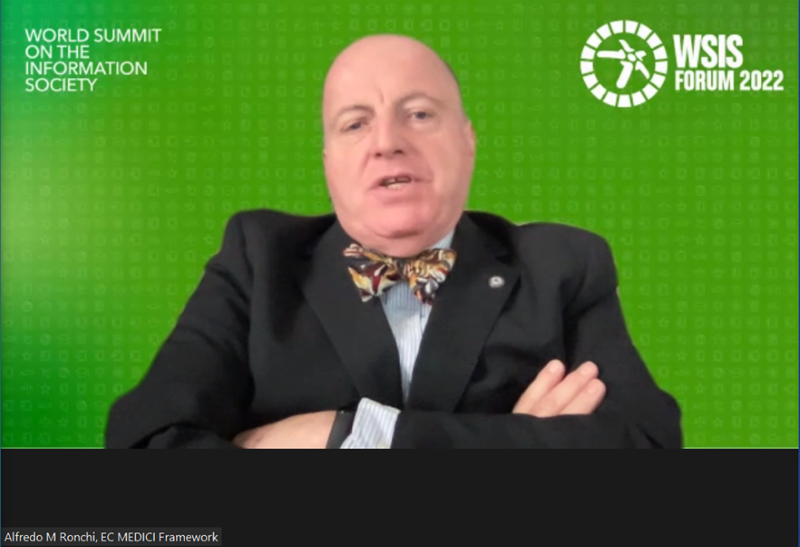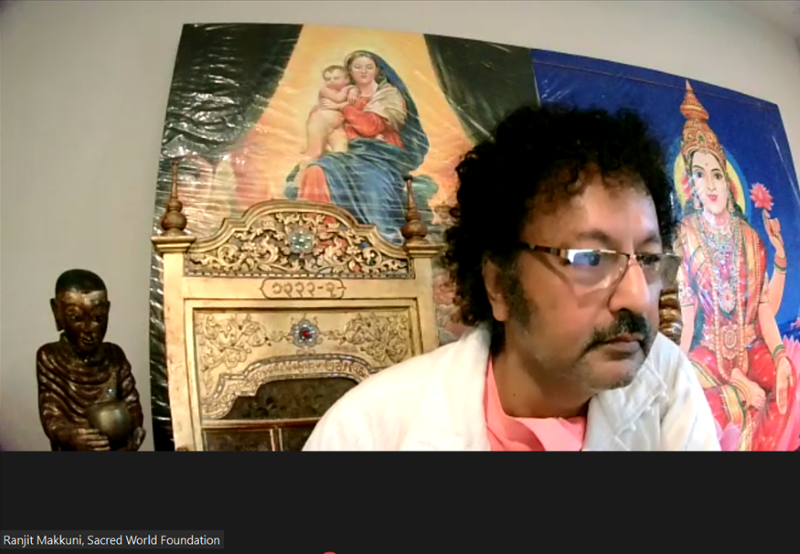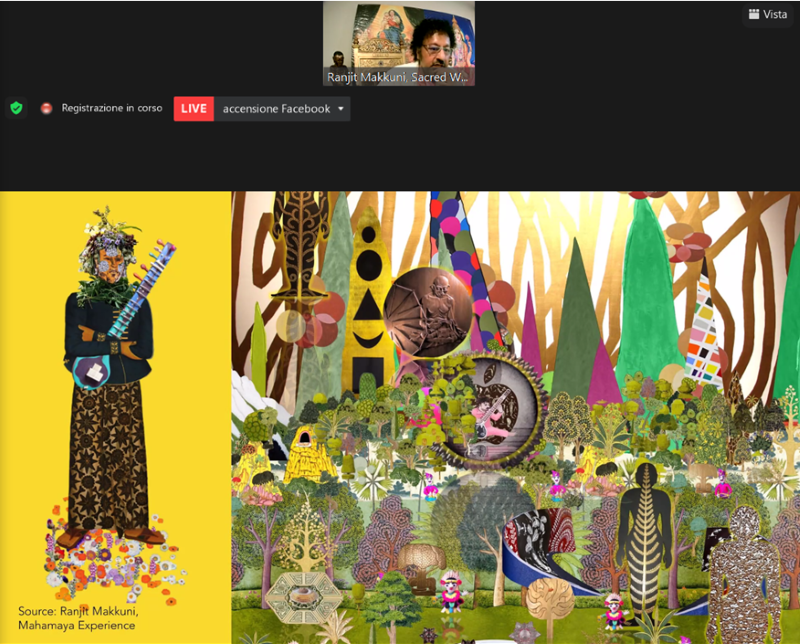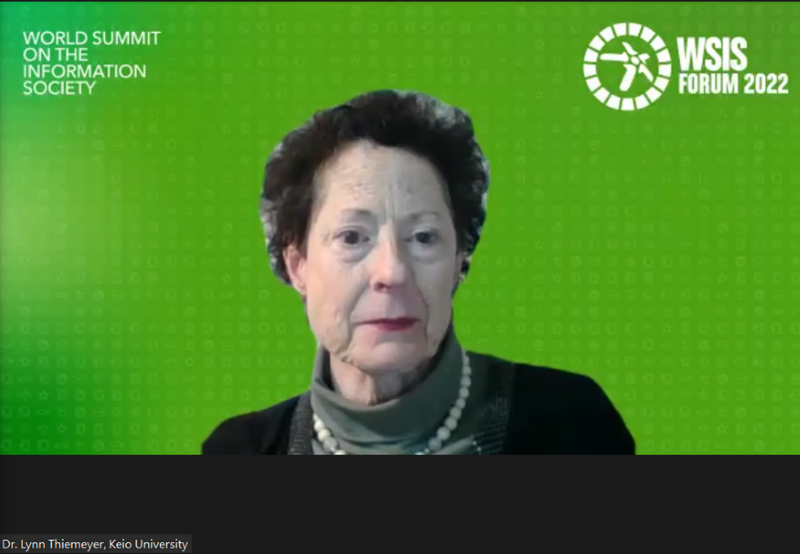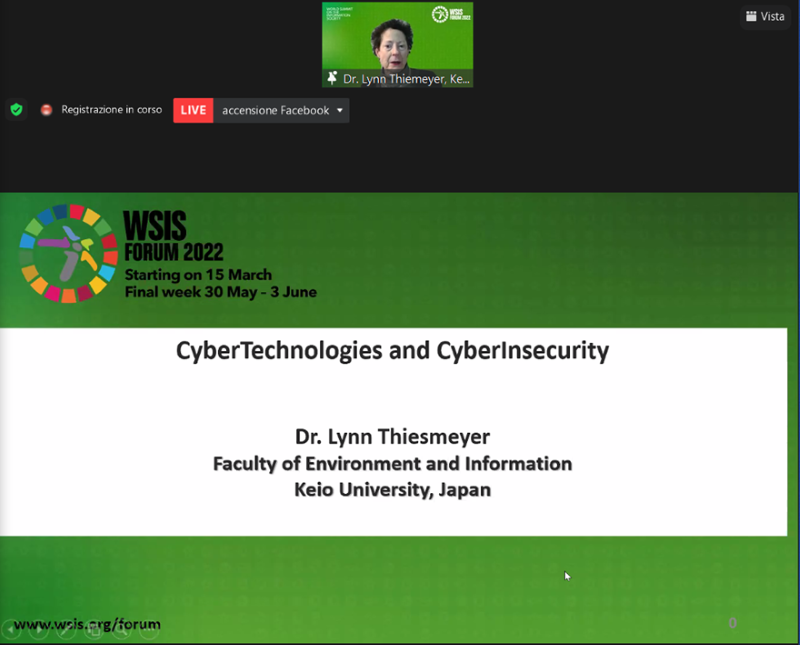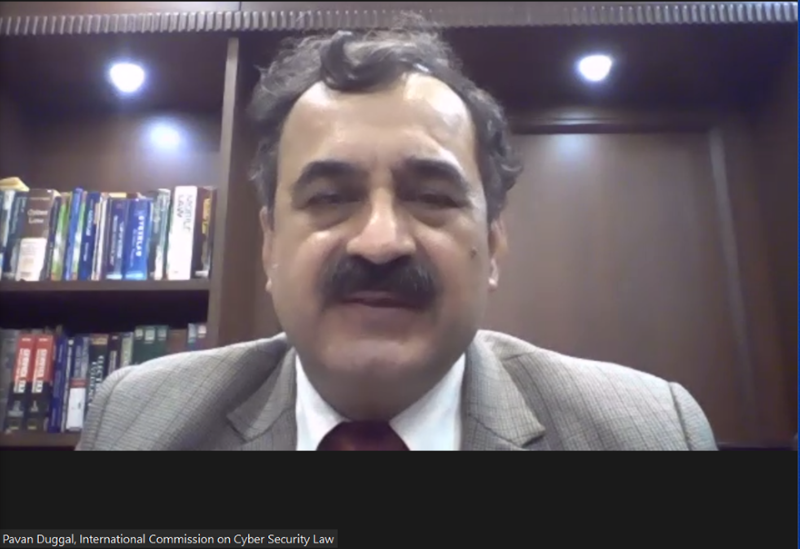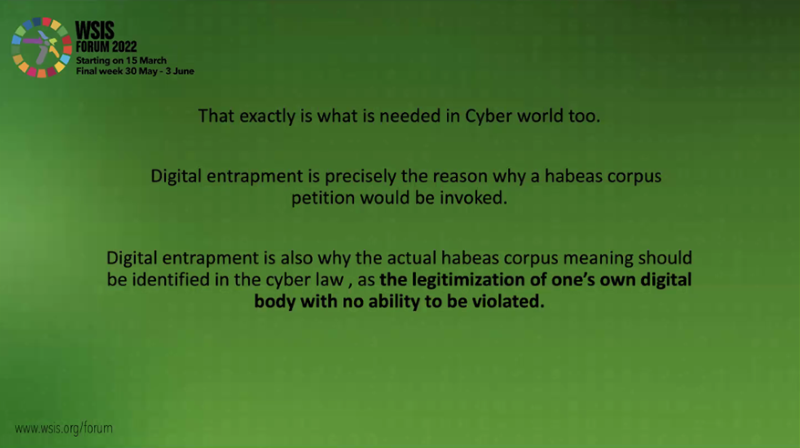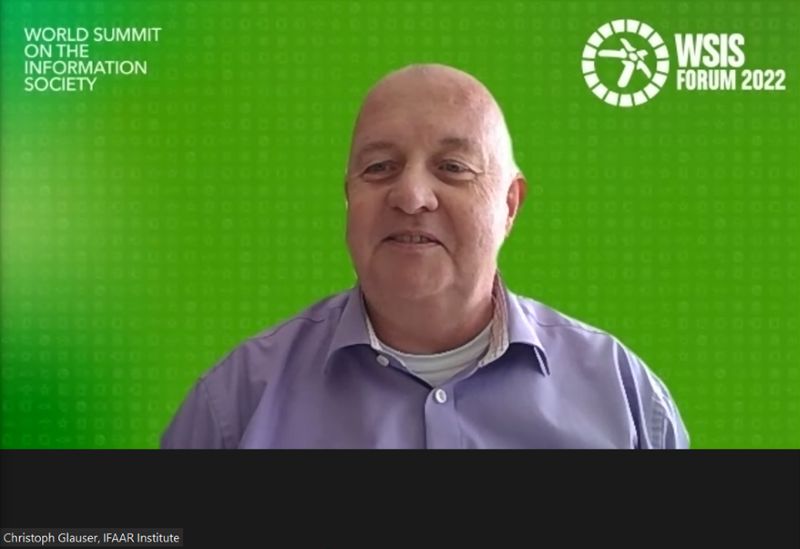Digital Entrapment
EC MEDICI Framework
Session 199
Feeling framed
Information is built on top of single or aggregation of data, for quite a long time people use to think that cyberspace is a “black hole” without memory where you pour data without any side effect. Young generations shared online sensitive information in order to access a videogame or chat with friends or more recently posted images and clips about their private life.
In the “Appification” era there are almost no limits to data collection and reuse, “someone” knows exactly where you are now and where you have been, APPs may collect your medical data, fitness program, your expenses or collect and analyse your contacts, your photos or video clips. In recent times crowd data collection, open and big data, more or less anonymised, provided the big framework.
Privacy has many dimensions, from concerns about intrusive information collection, through to risks of exposure, increased insecurity, or interference in their decisions that individuals or communities are subjected to when their ‘private’ information is widely known. Privacy is generally linked to individuals, families, or community groups, and is a concept that is often used to demarcate a line between a ‘private’ and ‘public’ sphere.
We live in a world in which there are already countless sensors and smart objects around us, all the time. The car we drive, the phone in our pocket, our wristwatch, the clothes we wear, are smart and connected, then the concept of “private” becomes far more ephemeral. This is not enough, what it is not collected by APPs it will be collected in a seamless mode by IoT; of course IoT will add a lot to our life but this will cost us a significant part of our privacy.
Home assistant appliances like Alexa, wearable devices like smart watches, bracelets are becoming pervasive as well. Cyber technology is increasingly merging any sector of our daily life, we are witnessing relevant changes due to both technological enhancements and modification of user requirements/expectations. Freedom of expression is endangered due both to governments and social media and news platforms.
However, Google, Facebook, Twitter, Apple, Microsoft, Amazon, and any of the other hundreds of companies that can and do collect data about you can use “your” data for all kinds of amazing things. In the “datafication” era there are almost no limits to data collection and reuse; “someone” knows exactly where you are now and where you have been, APPs may collect your medical data, fitness program, your expenses or collect and analyse your contacts, your photos or video clips, access your smartphone camera and microphone. What about the push message asking to provide details about your activities yesterday evening, something that your digital “buddy” was unable to trace? Your bank will suggest, accordingly with some intelligent algorithms the average monthly expenses due to profiles matching with yours and send an alert if you are exceeding the limit. Computer vision will enable your smartphone to identify every single person in a group you photographed and video analysis plus 3D real-time modelling enable intelligent optimisation algorithms to improve human performances, wearable sensors and IoT complete the schema.
Don’t you feel framed by such an “intelligent” environment? Social and communication media complete the panorama adding a “private depth” to the general fresco, ad-hoc defined tweets or posts may collect and analyse users’ feedbacks to guide or anticipate citizens ’actions and feelings. In recent times crowd data collection, open data, and big data, more or less anonymised, have provided the big framework was to collect all the different tiles. Online malls and delivery platforms offer, in addition, to analysing your browsing, the opportunity to save a “wish list” to better focus on the market trends. So, again don’t you feel framed?
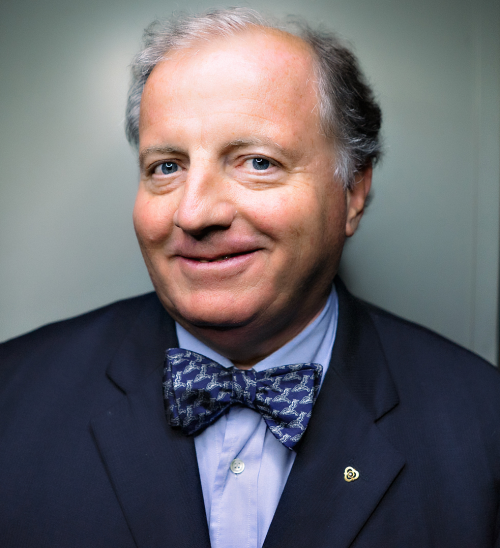
Alfredo M. Ronchi bio - professor at Politecnico di Milano (Engineering Faculty), Expert/advisor in e-Services, Head of the JRC S2D2 (Safety, Security, Defence, Disaster Recovery and Management) Politecnico di Milano, General Secretary of the EC-MEDICI Framework of Cooperation, delegate at UNESCO IFAP and active member of the WSIS since the establishment (2003-2019).
He is member WSA Grand Jury and President of eContentAward Italy, member of the Scientific Committee of Global Forum (F-USA), Sacred World Foundation (New Delhi), Fondazione Nuove Comunicazioni (Italy).
Mr Ronchi is member of the following Boards of Directors: Global Forum, World Summit Award, European Youth Award, European Education New Society Association (ENSA), Fondazione Italiana Nuove Comunicazioni. Member of the Keio University NoE. Member of the Advisory Board of the School of Law under the aegis of GD Goenka University (New Delhi, India).
Ronchi is appointed as an expert by: European Commission (EC), Council of Europe (CoE), International Telecommunication Union (ITU), Italian Association of Banks (ABI), National Research Council (CNR). National and international project coordinator.
As Secretary of EC MEDICI Framework Ronchi promoted and coordinated, among the others, the following initiatives: “On culture in a world-wide Information Society” (1999), “Long-term preservation of digital content” (1999-2007), “Digital preservation of Intangible Heritage” (2005), “Fostering the “Culture” of cybersecurity” (2015), “e-Citizens: being human in the digital age” (2019).
OCCAM (Osservatorio Comunicazione Digitale) Delegate at United Nations International Centre in Vienna (1996-2001) and United Nations headquarters in Geneva (2002-2016). Some initiatives within WSIS are: Best e-Content and Services on the occasion of WSIS 2005, 2010, 2015, High Level Policy Statements 2015, 2016, 2017 Thematic Workshops “ICTs for Safety and Security” 2016, 2017, 2018, 2019[1]. Main contributions to UNESCO IFAP initiatives in the field of: Digital Preservation, Multilingualism in Cyberspace, Linguistic and Cultural Diversity in Cyberspace, Internet and Socio-Cultural Transformations, Media and Information Literacy for Knowledge Societies, Infoethics[2].
He cooperated as organizer or programme chair in W3C, ACM, IEEE conferences; since more than thirty-five years he organizes and manages international conferences and workshops.
Author/contributor of more than 400 papers and various books on: e-Culture, IPR, e-Government, e-Health, e-Learning, and e-Services.
[1] pls refer to https://www.itu.int/net/wsis/
[2] pls. refer to http://www.ifapcom.ru/en
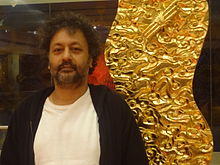
Ranjit Makkuni is an international multimedia artist and designer, the honorary director of the design think tank, the Sacred World Research Laboratory, as well as a musician, sitar player, and songwriter.
His multimedia museum works are intersections between traditional and modern art, design and technology, such that the results help both traditional and modern cultures. They are intended to show that the wisdom of traditional communities can positively negate the homogenizing influences of modern technology; and that the intelligence, creativity and sense of freedom afforded by modern design and technology can reciprocally help traditional artists.
His major works are several museum projects: Eternal Gandhi Multimedia Museum, Planet Health Museum, The Goddess and Temples of Music, and The Crossing: Living, Dying and Transformation in Banaras.
Makkuni obtained a B.Arch. from IIT Kharagpur, and a Masters in Design Theory and Methods from University of California, Los Angeles (UCLA). He has been a scientific consultant to HP Labs Palo Alto, HP Labs Bangalore, and a member of the Explorer's club of the Ivrea Institute of Design, Ivrea, Italy. He is a member of the mentoring group of Nehru Memorial Museum, New Delhi, constituted by the Prime Minister of India
Works done at Xerox Palo Alto Research Center
In 1985, Makkuni joined the System Concepts Lab of PARC, becoming part of the group which developed the object-oriented programming language Smalltalk-80 and the world's first graphical user interface. From that base, Makkuni pioneered explorations in computer-aided design (CAD), gesture recognition interfaces, and multimedia applications to develop the Active Learning Project at PARC. These have been demonstrated as museum exhibitions in the US, India, Europe and Thailand (see Bibliography – Exhibitions below), transforming people's perceptions of traditional cultures ,and presenting an Asian approach to interaction with computing technology.
In 1989, The Electronic Sketchbook of Tibetan Thangka Painting was displayed in the Asian Art Museum of San Francisco. This project represents one of the world's first multimedia applications of any kind and a pioneering example of a computer based cultural learning tool.
During 1994–1997, he worked with scholars at the Indira Gandhi National Centre for the Arts, New Delhi, to develop the Gita-Govinda Multimedia Experience, a pioneering demonstration of a physical-virtual multimedia document based on the poet Jayadeva’s 12th century love poem, the Gita Govinda. This project brought the footprints of multimedia computing technology to India.
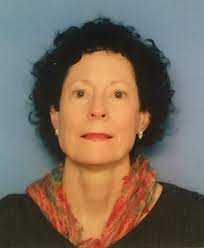
Dr. Lynn Thiesmeyer specializes in Asian sustainable development with a focus on Upper Mekong regional and rural development, including environmental and climate change migration and slow-onset disasters. She is Professor Emerita and Adjunct Professor of Environmental Information at Keio University, Japan’s oldest academic university, where she has been a professor since 1995. She has worked as an advisor and co-researcher with APEC (the Asia-Pacific Economic Commission), with the United Nations Development Program, UNESCO, the World Bank Gateway for Gender and Development, and the MEDICI Framework of the European Commission, and she was a Research Advisor to the Mekong Institute of Thailand. She has also been a lecturer for the United Nations Global Seminars in Japan and at the Graduate Program of Health Social Sciences of Mahidol University of Thailand. Her publications include Human Insecurity in East Asia (co-edited, 2009), Informal and Illegal Movement in the Upper Greater Mekong Subregion (2010), articles on environmental policy in ASEAN, and book chapters on security, spatial politics, and socio-economic and ecological impacts of development projects in rural areas of the Upper Mekong. In 2017 she received the Keio University Award for Career Research Achievement on Socio-economic impacts of Regional Development Projects in Southeast Asia.

While a practicing Advocate, Supreme Court of India, Dr. Pavan Duggal has made an immense impact with an international reputation as an Expert and Authority on Cyber Law, Cyber Security Law, Artificial Intelligence Law & E-commerce law.
Dr. Duggal has been acknowledged as one of the top 4 Cyber Lawyers around the world.
WDD [World Domain Day] recognizes him as one of the top 10 Cyber Lawyers around the world.
Dr. Pavan Duggal, is the Founder & Chairman of International Commission on Cyber Security Law. He is also the President of Cyberlaws.Net and has been working in the pioneering area of Cyber Law, Cyber Security Law & Mobile Law.
Pavan is also heading the Artificial Intelligence Law Hub and Blockchain Law Epicentre. He is the Founder-cum-Honorary Chancellor of Cyberlaw University.
Dr. Pavan Duggal is also the Conference Director of the International Conference on Cyberlaw, Cybercrime & Cybersecurity, being world's only authoritative Conference on Cyberlaw, Cybercrime & Cybersecurity. In addition, Dr. Duggal has also conducted various Round Tables on Cyberlaw, Cybercrime & Cybersecurity over the last couple of years. He has also organized various Thematic Workshops at the previously held ITU WSIS Forums.
His empanelment as a consultant to UNCTAD and UNESCAP on Cyber Law and Cyber Crime respectively, membership of the AFACT Legal Working Group of the UN / CEFAT, consulting as an expert with the Council Of Europe on Cyber Crime, inclusion in the Board of Experts of European Commission’s Dr. E-commerce and his work as an expert authority on a Cyber Law primer for E-ASEAN Task Force and as a reviewer for Asian Development Bank speaks volumes of his worldwide acceptance as an authority. Pavan is the President of Cyberlaw Asia, Asia’s pioneering organization committed to the passing of dynamic cyber laws in the Asian continent. Dr Duggal is also a member of the WIPO Arbitration and Mediation Center Panel of Neutrals.
Dr. Pavan Duggal, in association with International Telecommunications Union, conducted two Training cum Sensitization Programmes for the elected Judges and Officers of the International Court of Justice (ICJ) at The Hague, Netherlands on 23rd May, 2019.
As an internationally renowned Cyber law and Cyber security subject expert, at the world stage during the High-Level Policy Statement delivered by him at the World Summit on Information Society (WSIS) organized by the International Telecommunications Union (ITU), UNESCO, UNCTAD & UNDP in Geneva, Switzerland from 25th May – 29th May, 2015. Pavan Duggal has recommended the need for coming up with an International Convention on Cyberlaw &Cyber Security.
He has been associated with UNESCO on various legal and policy issues concerning cyberspace.
As a thought leader, Dr. Duggal has suggested that India requires a new legislation that is wholly dedicated to cyber security.
Pavan, as an international expert and authority, conducts 44 different online courses at Cyberlaw University, which have been subscribed by more than 27,000 students from 174 countries, speaking 53 national languages with excellent ratings.
Pavan is a member of the Board of Globethics.net, global network of persons and institutions interested in various fields of applied ethics.
Dr Duggal has been the Member of the Public Interest Registry’s.Org Advisory Council. He is a member of ICT policy and governance working group of the UNICT taskforce. He is the legal and policy Consultant to Internet Mark 2 Project, which is examining the next level of internet. He has been invited to be an Associated Fellow of the Centre for Asia Pacific Technology Law and Policy (CAPTEL) at Singapore. He is a Member of Panel of Arbitrators of the Regional Centre for Arbitration, Kuala Lumpur and Asian Domain Names Dispute Resolution Centre at Hong Kong. He is a Panel Member Of Permanent Monitoring Panel For Information Security-World Federation Of Scientists.
He has been associated with the Ministry Of Communication and Information Technology, Government of India on Cyber Law and Electronic Governance legal issues and is a member of Advisory Committee on e-governance in Karnataka constituted by the Government of Karnataka. As also a member of Information Forensic Working Group on E-Information Systems, Security and Audit Association.
Dr. Duggal is a member of Multi – Stakeholder Steering Group of the Asia Pacific Region Internet Governance Forum (APRIGF).
He heads his niche law firm Pavan Duggal Associates, which has practice areas, amongst others, in Cyber Law, Business Process Outsourcing Law, Intellectual Property Rights and Information Technology Law, Information Security Law, Defence, Biotech and Corporate Law.
While he has been a member of the Nominating Committee, Membership Advisory Committee and Membership Implementation Task Force of ICANN, Pavan is the founder of the Cyber Law Association and is also the Founder-President, Cyberlaw India.
Some outstanding pioneering work in the field of BPO legal issues has resulted in his being a member of the BPO Steering Committee of ASSOCHAM. Today, he advises a number of BPO concerns on different legal issues relating to outsourcing. Pavan is the Co-Chairman of the Cyber Security Committee of ASSOCHAM, was the Chairman of the Cyber Law Committee of ASSOCHAM and works closely with CII and FICCI.
Dr. Duggal is a regular on the lecture circuit. He has spoken at over 2000 Conferences, Seminars and Workshops in the last two decades, and has lectured extensively in select Law Colleges. As a Writer, he has made his mark with 174 Books on various aspects of the law in the last 20 years. Dr. Pavan Duggal’s books have been conferred various awards by Book Authority in various categories over a couple of years. In addition, he has been conferred with various awards including “Ordre du Merite de Budapest”, by Council of Europe Economic Crime Division, November 2011, Strasbourg. He had contributed a continuing weekly column on diverse aspects of the law, titled ‘Brief Cases’ to the Economic Times, for almost a decade.
More about Dr. Pavan Duggal is available at http://www.pavanduggal.com/ and https://www.linkedin.com/in/pavanduggal.
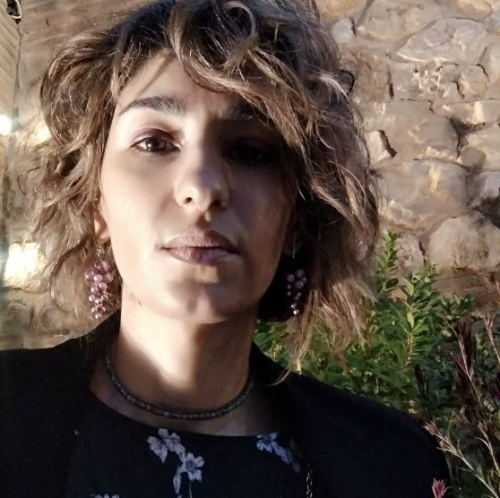
Maria Amanatidi, born on the 13th of September 1988.
I have fulfilled my bachelor studies in Geography, at Harokopio University of Athens, in Greece, and I have continued with my Master’s on Cultural Anthropology and Sustainable Citizenship in Utrecht University in the Netherlands.
After different job vacancies and potential directions, since the end of 2020 I have come to be part of Net Technologies Finland Oy working team, as a Research Consultant.
I have been active on projects for digital transformation, especially for critical infrastructures. I am a team member for various critical communications projects for gas and oil. Realizing the need for holistic perspective ability between engineering / telecommunications & consultancy and human needs, I come to intertwine the practical dimension of work cases with the humanitarian need and approach every venture and entrepreneurship development need to encompass.
For my research working projects, dealing with social media, citizens’ engagement and social milling, gender equality and minority integration, my aim and contribution specializes on domains towards a new sustainable and inclusive society.
I am always eager to research, comprehend, challenge my conscience along with that of society and correlate my identity with the rest of the world’s.
Selling my professional identity creates a sense of fulfillment when putting myself in words. Yet, it is also an inconvenient role trying to commodify my personality and commercialize my authenticity; therefore, my willingness to surpass the biased norms and values is what characterizes me.
My objective is to meet, interact, consort with, and differ from people so that I can change and evolve.
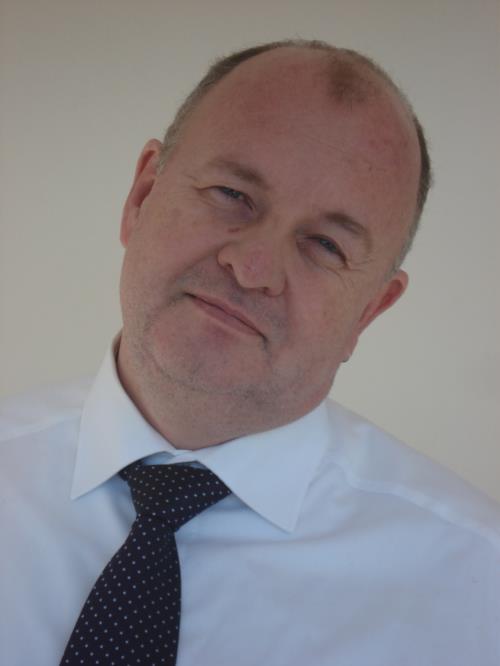
Dr. Christoph Glauser was born on 9th October 1964 in Berne, Switzerland. Between 1985 and 1992 he studied mass media, political science and history at the universities of Berne and Geneva. In the framework of a national research program about “efficiency and efficacy of government programs” he assisted the dean at the University of Geneva while doing his PhD at the University of Berne. In 1994 he quit his law studies at the University of Geneva to found his own “Institute for applied argumentation research IFAAR” in Berne, where he started doing scientific research about national and international election campaigns and content analysis for media and news agencies. He has two daughters who both live and study in Berne.
From 1996 to 2000 he directed a research program at the Swiss Federal Institute of Technology (ETH) in Zurich about “expert communication on biotechnology in the public sphere and in the media”. In 1998 he was lecturing “Publizistik (Communications)” at the University of Zürich. Between 1998 and 2007 he was lecturing as a guest Professor at Communication School of the University of Washington Seattle USA. Since 2001 Dr. Glauser has been director of the “IFAAR” institute and managing director of ArgYou AG. He has developed the “find-engine” for measuring “user audience search volumes” to show the impact of online campaigns, PR and e-government. “Computerworld” calls him a GOT (Global Online Tycoon).
-
 C1. The role of governments and all stakeholders in the promotion of ICTs for development
C1. The role of governments and all stakeholders in the promotion of ICTs for development
-
 C3. Access to information and knowledge
C3. Access to information and knowledge
-
 C4. Capacity building
C4. Capacity building
-
 C5. Building confidence and security in use of ICTs
C5. Building confidence and security in use of ICTs
-
 C6. Enabling environment
C6. Enabling environment
-
 C8. Cultural diversity and identity, linguistic diversity and local content
C8. Cultural diversity and identity, linguistic diversity and local content
-
 C9. Media
C9. Media
-
 C10. Ethical dimensions of the Information Society
C10. Ethical dimensions of the Information Society
The session will adequately take into account the different WSIS Action Lines with specific reference to the Ethical dimension C10, Capacity Building C4 and Building confidence and security in use of ICTs C5
-
 Goal 3: Ensure healthy lives and promote well-being for all
Goal 3: Ensure healthy lives and promote well-being for all
-
 Goal 4: Ensure inclusive and equitable quality education and promote lifelong learning opportunities for all
Goal 4: Ensure inclusive and equitable quality education and promote lifelong learning opportunities for all
-
 Goal 9: Build resilient infrastructure, promote sustainable industrialization and foster innovation
Goal 9: Build resilient infrastructure, promote sustainable industrialization and foster innovation
-
 Goal 16: Promote just, peaceful and inclusive societies
Goal 16: Promote just, peaceful and inclusive societies

